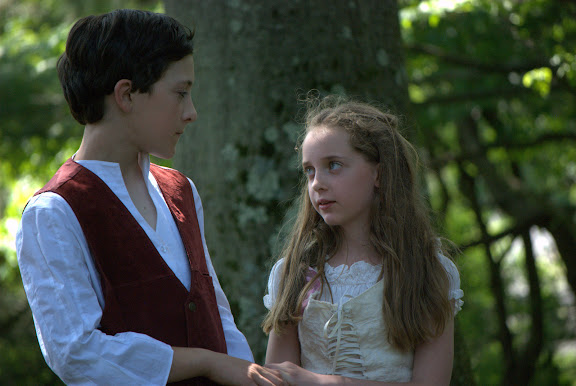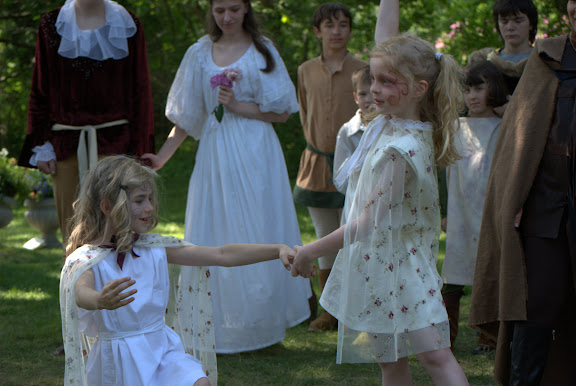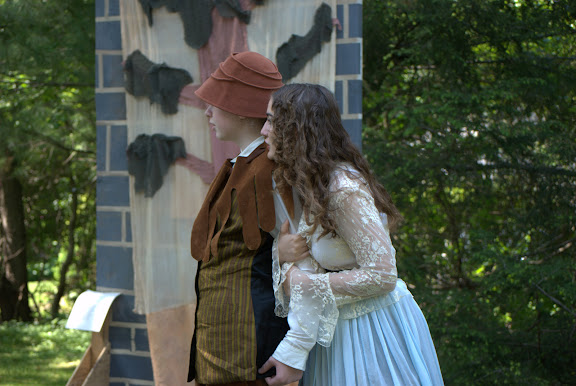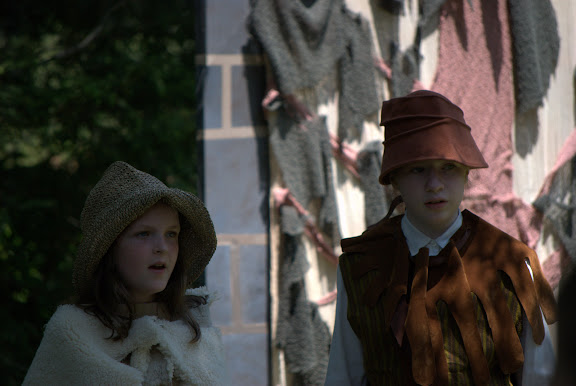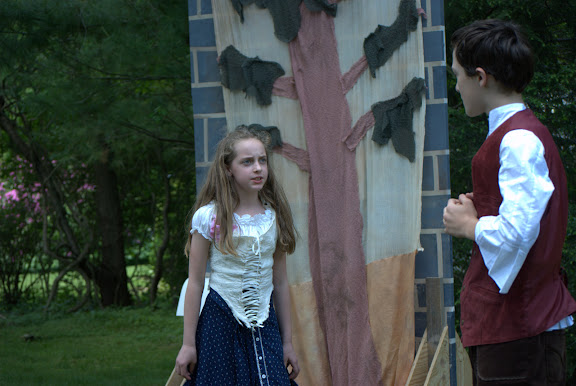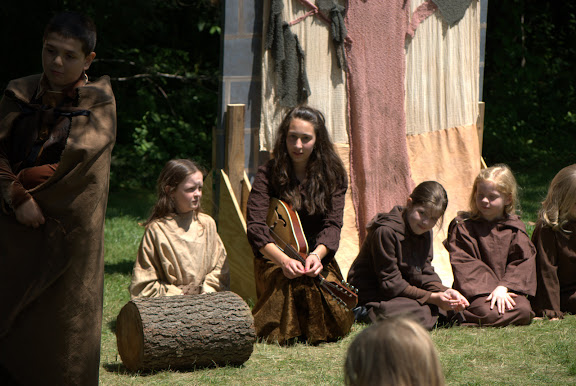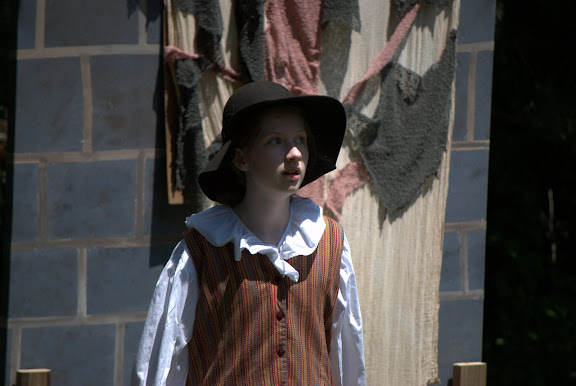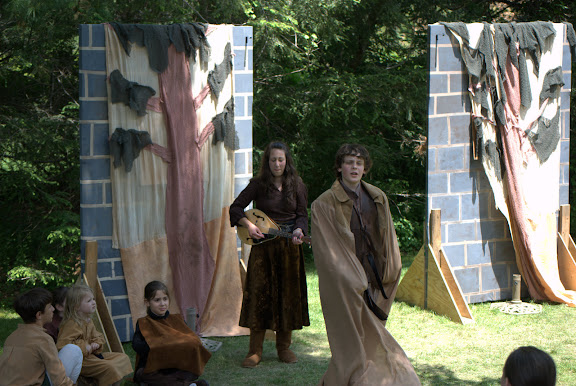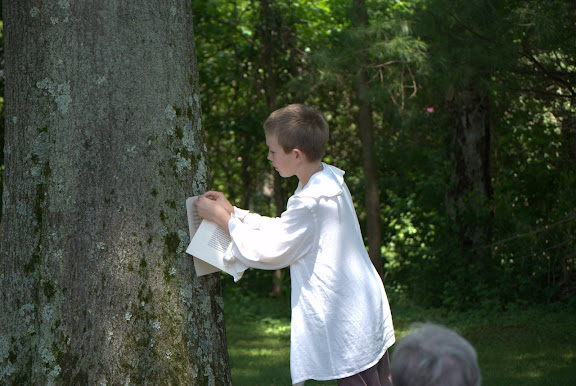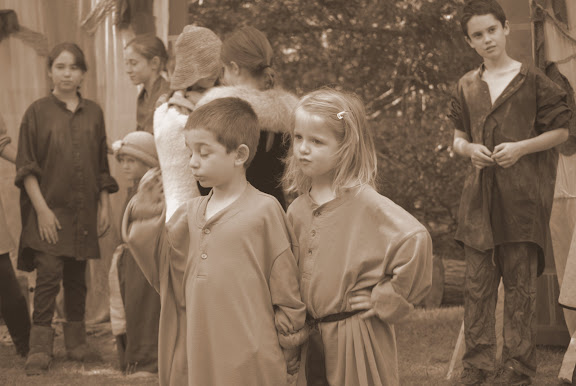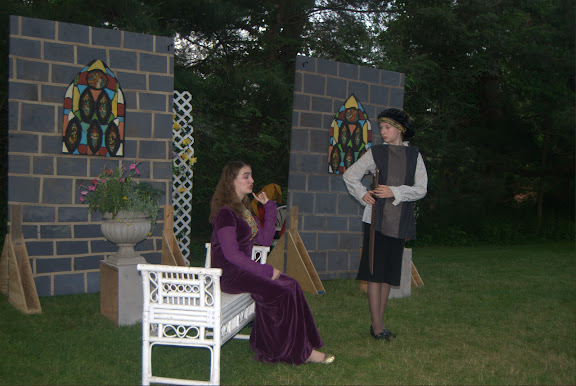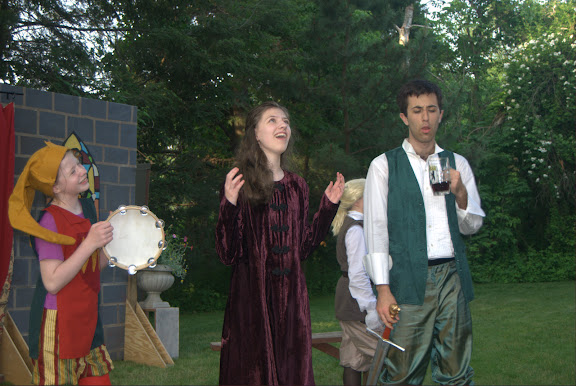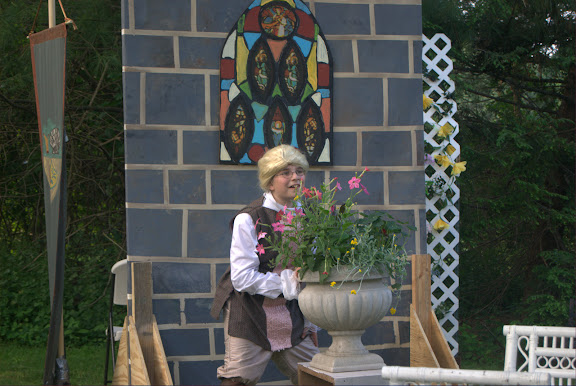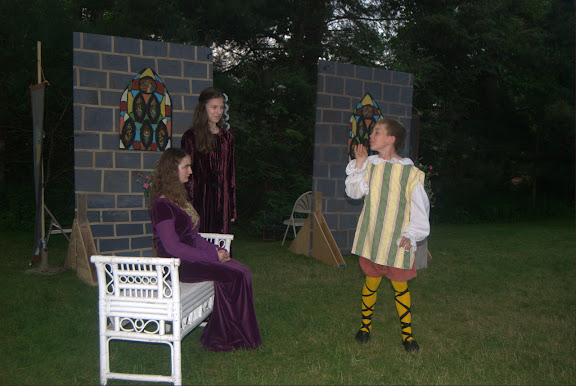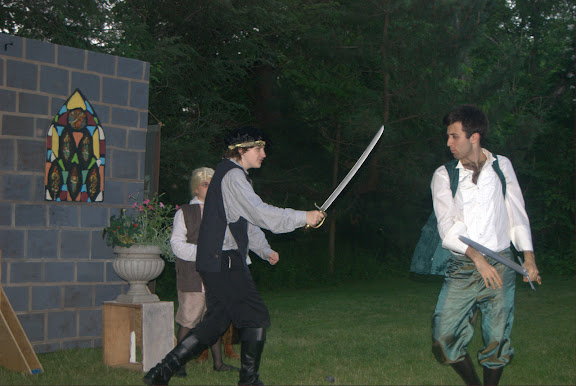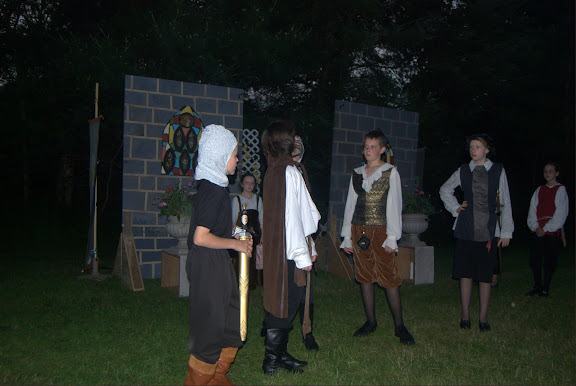I gave you all a taste of our Shakespeare productions in
yesterday's blog post, but because of a question about unschooling and the value of studying Shakespeare on Facebook, I am adding this post about our troupe, Front Lawn Players, a group founded in 2005, which performs a complete, unabridged play every spring. The students, some unschooled, some more formally schooled, are all homeschoolers who dedicate time and effort to perform the works faithfully, in costume, on a set designed and built by parents and students. We are blessed with talented parents (who design, direct, stage, schedule, prompt, drive, and more...) and kids (who act, and help out with all the other jobs) who have all seen the value of this kind of in-depth Shakespeare study (for that's what it really is) year after year. Shakespeare by total immersion is the method.
Because the stage is a flatbed truck, it can be brought on site and assembled in no time. Well, it takes a few hours, and is assembled by men, distracted by small children running around:
And voila!
 |
| Finished Set--two levels, two stairways |
The Shakespeare season has been an annual event for so long, and takes up so much time--real educational time--and provides some many lessons, that we have become rather good at interpreting the lessons learned for consumption by education professionals (college applications, quarterly reports, etc.). Subjects covered include the obvious--enhanced oral reading skills, language, diction, vocabulary, contextual understanding, history, acting, and the sort of things you would expect. They also learn costuming (and through that, clothing styles from other centuries), ethics (deception is a common theme), religion (see Claire Asquith's
Shadowplay and Joseph Pierce's
Quest for Shakespeare), politics, economics (we have a budget--sort of), geography, law, and human nature.
And time management--are your lines memorized yet??
This year we are using the wonderful technology of Google+ hangouts for line practice. This saves gas (we really do this on a shoestring budget), and ensures that the kids are getting the pronunciations correct and so do not have to unlearn mistakes.
Here are some video clips and some still photos and links to our productions. I hope you'll agree that the kids really pull off something amazing.
Click through to youtube for the whole scene, which does not fit here.
We begin each year by announcing the cast list. Casting is a chore that goes to our director. We do not audition, since the company does not change, though graduates move on, and younger students move up to the senior group. The students, theoretically, practice their lines and know them well by the time rehearsals begin in March. In reality, everyone is constantly learning and relearning lines, stage directions, and cues until performance times. The kids drive each other to excel. Suddenly, chaos turns to order, and the play's the thing.
We perform in June for our homeschool group and for friends and relatives. And that's it.
 |
| From the Junior (now senior) Players: Poor Bottom! |
The older kids--junior and seniors--have gone on to direct other "spin off" groups within our larger homeschooling group, and their younger siblings perform A Midsummer Night's Dream every year, until they join the senior players. Best of all, the kids have made the sort of friendships based on common experience that will surely be lifelong.
Links to past productions:
Scenes from
As You Like It and
here. Note the older set, on ground level. Shakespeare does not need a big, complicated set. Our first and subsequent productions of A Midsummer Nights' Dream do not even use a stage, but rely on a few props and the landscape.
Scenes from
Twelfth Night, the play that taught me to spell Twelfth.






